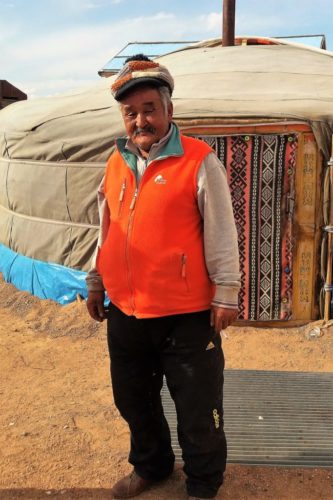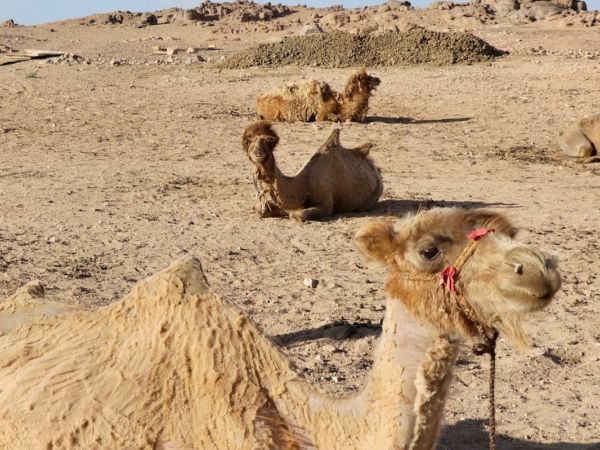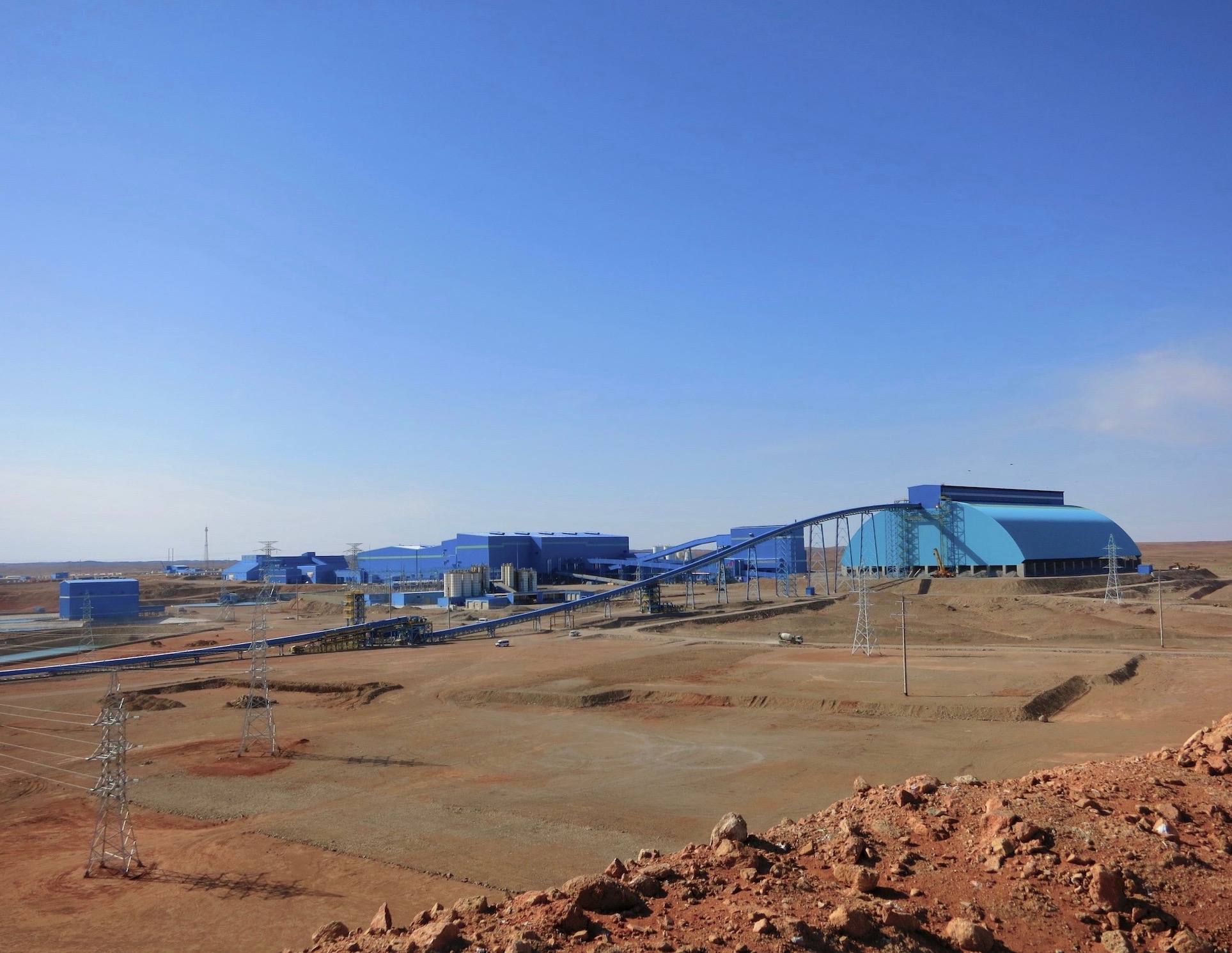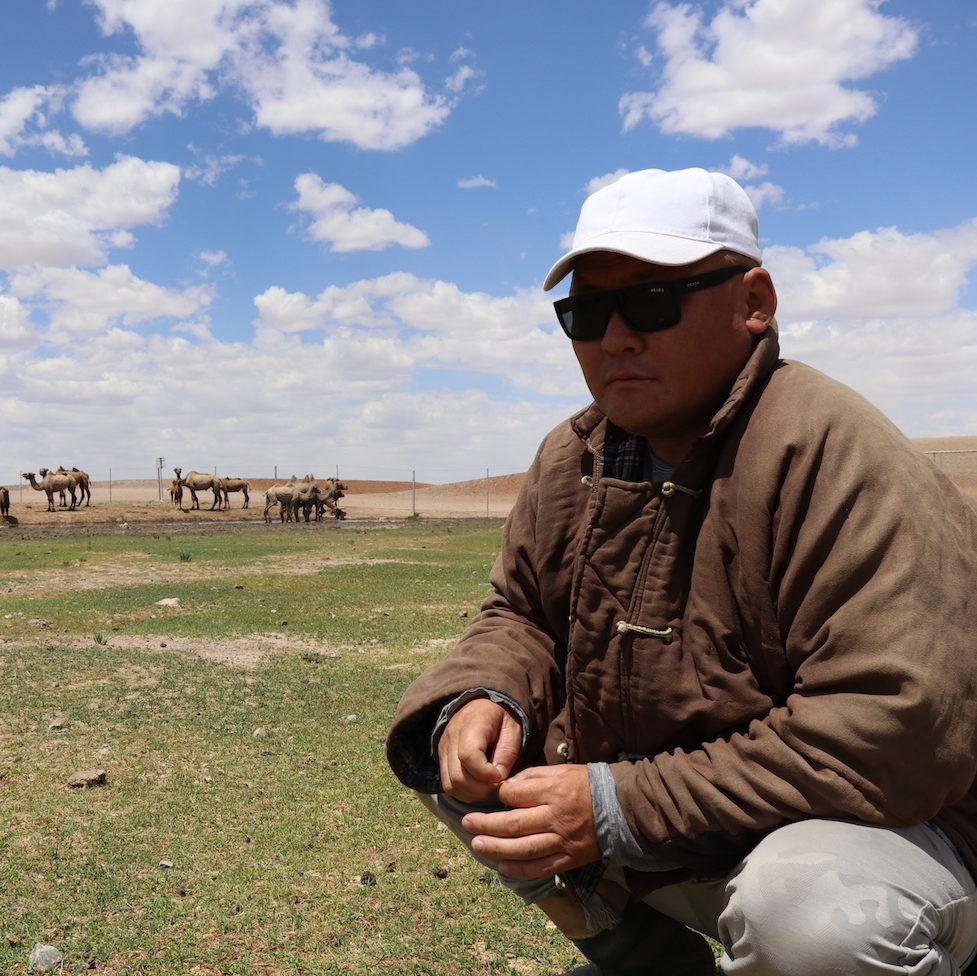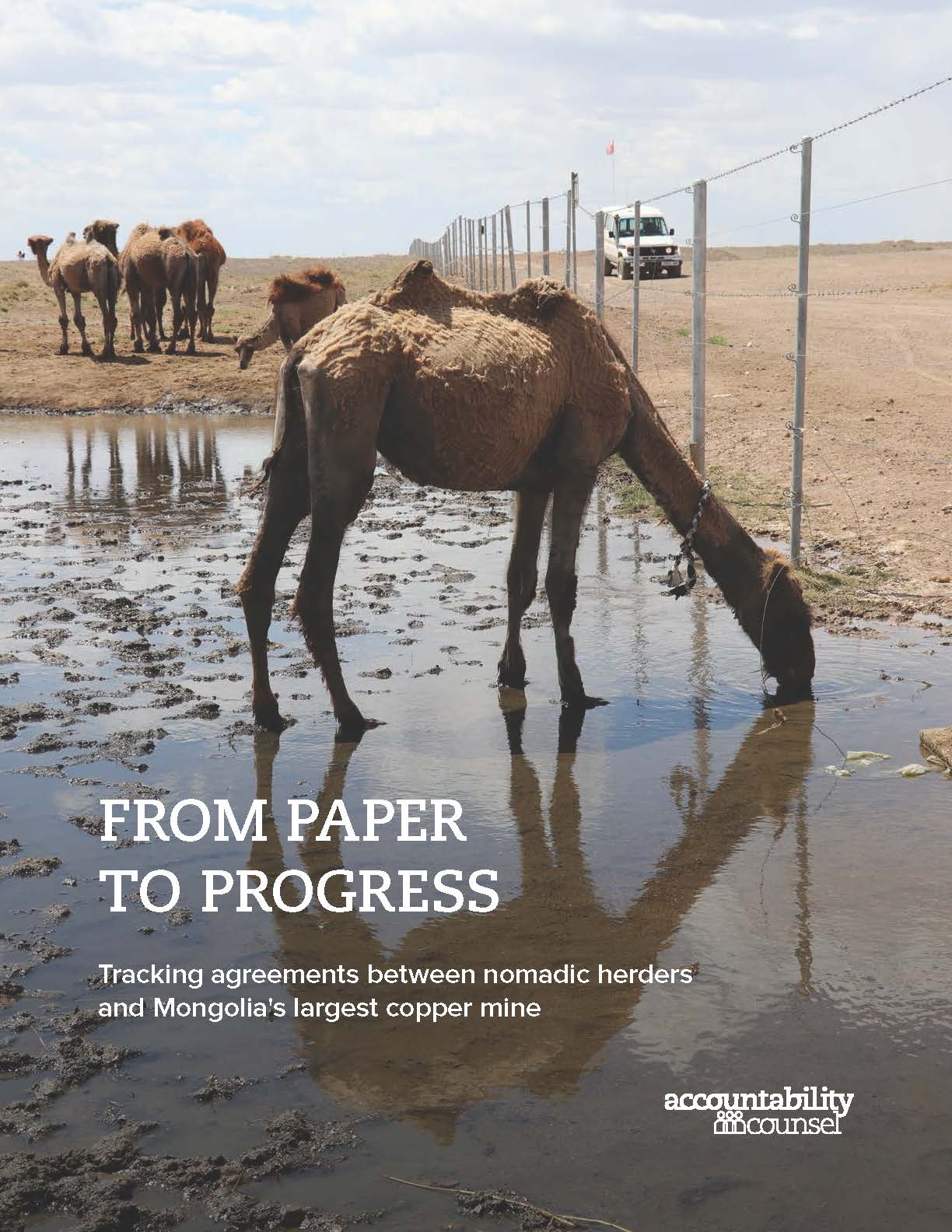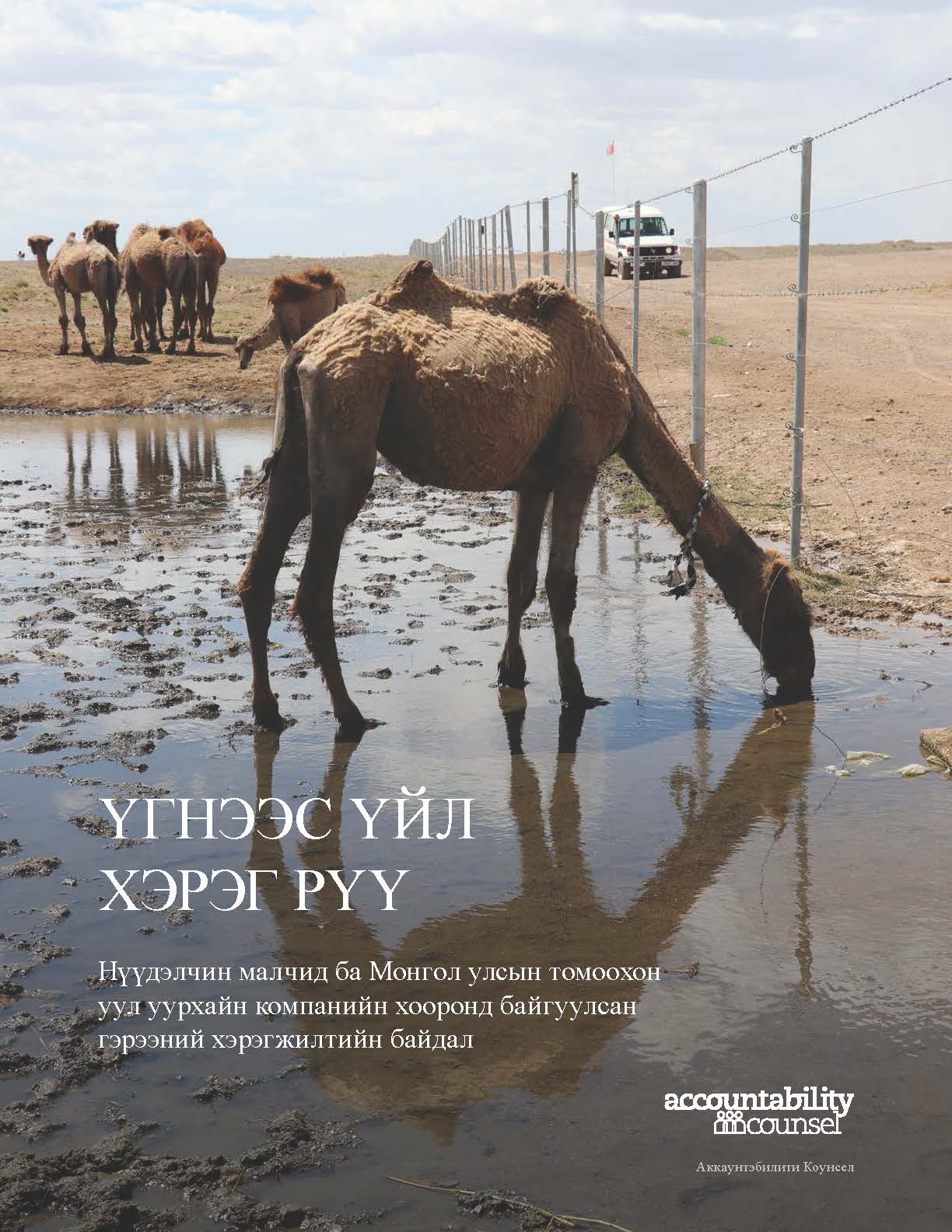Mongolia: South Gobi Mining
-
Overview
Accountability Counsel works with OT Watch to support South Gobi herders whose traditional culture and livelihoods are affected by Rio Tinto’s Oyu Tolgoi (OT) Mine, one of the world’s largest gold and copper mines. The historic agreements reached in this case serve as a model for how marginalized communities can hold companies and their institutional investors accountable and, further, for how corporations can settle conflicts to address projects’ social and environmental impacts.
See our Interactive Progress Report: www.tpcprogress.com (English) | www.gtzyavts.com (Mongolian)
Since 2012, we have worked with South Gobi herders in their efforts to raise concerns about harm caused by International Finance Corporation (IFC) and Multilateral Insurance Guarantee Agency (MIGA) support for the OT Mine. The herders filed two complaints to the IFC/MIGA’s Compliance Advisor/Ombudsman (CAO), which initiated an intensive dialogue process. For over 4 years, herder representatives met with mining company representatives regularly to work towards resolution of the complaints.
Like so many of the communities we support, herders faced a significant power imbalance in the dialogue. Accountability Counsel provided training and technical support throughout the process to help ensure that the herders had the expert advice needed to demand justice effectively – in their own voice, on their own behalf.
In 2015, the herders and the company joined together with the local government to form a Tripartite Council – a freestanding body, with equal representation by each party, to resolve any disputes that arise between herders and the mine during the life of the project.
In May 2017, after over four years of voluntary negotiations, the herders successfully reached agreements with the mining company and the local government to resolve their original complaints. These agreements set the path for more complete compensation, improved access to water and organization of pasture resources, and represent an important step towards allowing local herders to continue the traditional practices of their ancestors. Accountability Counsel is continuing our support to ensure that these agreements are implemented well.
“These agreements represent a huge amount of hard work and progress in our four years of negotiations. We will continue to be vigilant and make sure what has been agreed to is actually accomplished, but today we feel that our complaints about the negative impact of this mine on local herders are starting to be addressed in a serious way.” — Battsengel Lkhamdoorov, a member of the Elected Herder Team that negotiated with Oyu Tolgoi and the local government
-
The Story
The $13.2 billion Oyu Tolgoi (OT) Mining Project, operated by Rio Tinto, is the largest foreign investment in Mongolia. OT secured $4.4 billion from 20 banks and financial institutions, including the World Bank Group’s International Finance Corporation (IFC) and Multilateral Insurance Guarantee Agency (MIGA), to fund an underground mine expansion. The planned expansion included excavation of more than 125 miles of tunnels that would extend almost a mile deep and would be expected to create surface subsidence approximately five square miles in size, with cliffs in excess of 65 feet tall. After this expansion, OT would be one of the largest copper mines in the world.
The OT Mine has faced fierce community resistance in Mongolia for years. One of the biggest concerns is the project’s water requirement, as water is a scarce and valuable resource in the South Gobi desert. Traditional nomadic herders, who have lived in the region for centuries, have already experienced problems with wells going dry. Additionally, the infrastructure and construction related to the project have degraded and fragmented herders’ traditional pastures, forcing some of them to abandon their herding lifestyles. Several herders have already experienced devastating herd loss and other impacts after being forced to resettle because of the OT Project. Furthermore, herders have complained that the company forced them to sign unfair contracts in violation of their rights.
In 2012, Accountability Counsel began working with OT Watch, local herders and a coalition of other groups in their efforts to raise concerns about harm caused by International Finance Corporation (IFC) and Multilateral Insurance Guarantee Agency (MIGA) support for the OT Mine. Herders submitted two complaints to the Compliance Advisor/Ombudsman (CAO), the accountability office for the IFC and MIGA. The first complaint raised concerns about the inadequacy of the resettlement packages offered to herders displaced by the OT Project, and the second complaint discussed the project’s impact on local water resources due to the diversion of the Undai River.
“Ever since the Oyu Tolgoi mine started, so much dust began to come in. Pasture land is constrained. Water has become very scarce for all herders everywhere. Herder disputes over pasture and water have really become a serious issue. This is how we are being affected.” — Dorjkhand Bataa, Affected Herder

The Dialogue
In response to the complaints, the CAO convened a dialogue process to assist the herders in reaching an agreement with the project company on these issues. The dialogue process resulted in the establishment of a Tripartite Council, with herder representatives meeting with local government and Rio Tinto representatives on a bimonthly basis to work towards resolution of the CAO complaints and future community grievances related to the project.
At the heart of the mediation process were questions about OT’s impacts on the surrounding environment, especially on herders’ pastureland, water supplies, and ability to maintain their traditional herding livelihoods. To answer these questions, the parties agreed to jointly select and hire independent experts to conduct, research, and produce reports addressing key questions raised by the herders’ complaints. These reports confirmed many of the herders’ claims regarding OT’s impacts on their livelihoods, called attention to longstanding problems with OT’s monitoring practices, and provided recommendations to address the issues they identified. These findings and recommendations directly informed the Tripartite Council’s process of negotiating a resolution to the herders’ complaints.
Final Agreements
In May 2017, after over four years of negotiations, the parties reached two agreements through the Tripartite Council’s process to resolve the herders’ complaints (Complaint Resolution Agreement #1 and Complaint Resolution Agreement #2). The agreements contain 60 individual commitments by OT and the local government, including commitments to:
- Address water issues, including a hydrogeological study to build knowledge of local water resources in the area and programs to build new wells for herders and to help maintain existing wells. The well building and maintenance programs also provide paid jobs to herders.
- Address pasture issues, including development of a pasture management plan to help address conflicts between herders for limited pasture resources.
- Improve programs for monitoring the environmental impacts of OT’s operations, which include herders’ participation to make sure the results are credible to the broader community, while also providing paid jobs to herders.
- Review past compensation provided by OT to ensure all herders who were physically or economically displaced by the project receive appropriate compensation packages. A Compensation Claims Committee will receive and review claims from herders who believe that they should have been eligible for compensation under prior compensation programs. The agreement also expands eligibility requirements to include some herders who were unfairly excluded in the past.
Additionally, the agreements establish a 10-part Sustainable Livelihood Program to support local herders to achieve greater economic stability while continuing their traditional nomadic livelihoods. Developed based on the herders’ own suggestions, the program consists of practical initiatives to address livelihoods difficulties in the short and long term. It includes:
- Construction of a local market and supply chain for animal products
- Construction of a slaughterhouse
- Improved health services for herders
- A fodder planting program
- Renewable energy (wind and solar) connections for herder wells
- Creation of a Herders’ Children Scholarship Program to help address the need for options to diversify livelihoods as well as support to continue herding practices.
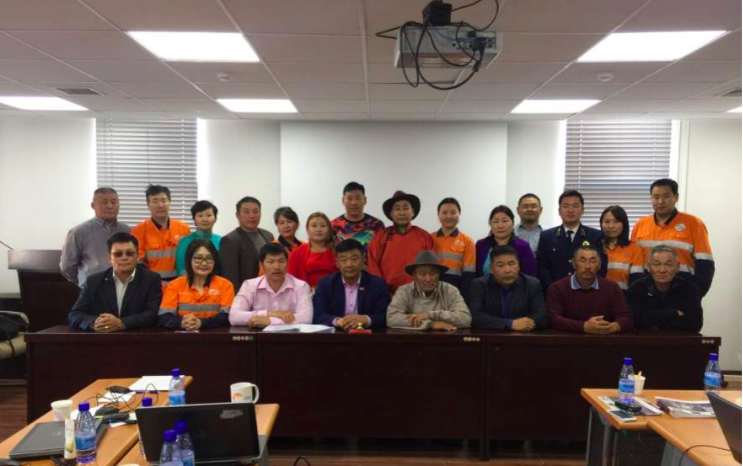
The Tripartite Council poses for a picture on the day of agreement signing
Implementation
With the agreements signed, the parties have begun implementing many of their commitments. The agreements provide that herders, OT, and the local government will collaborate to ensure that each commitment is enacted effectively to achieve its intended purpose. Accountability Counsel continues to support the herders towards a successful agreement implementation.
In early 2019, the TPC published a video promoting the progress that has been made to date and lauding its successful development into forum where herders and OT representatives can work together to solve problems. In March 2019, the CAO formally closed its case, with the approval of the TPC. This means that the CAO’s formal role in monitoring agreement implementation will end, but it does not mean that the agreements are fully realized.
Meanwhile, Accountability Counsel undertook a review of implementation progress and published our results in a February 2019 report, From Paper to Progress: Tracking Agreements between Nomadic Herders and Mongolia’s Largest Copper Mine. The report found that 58% of commitments have moved past initial planning stages and begun actual implementation. Just 29% of commitments were complete, while 53% had fallen behind schedule.
For more information on implementation progress, see our Interactive Progress Report: www.tpcprogress.com (English) | www.gtzyavts.com (Mongolian).
Case Partners
Bank Information Center partners with civil society to promote social and economic justice and ecological sustainability in developing countries.
CEE Bankwatch Network monitors the activities of international financial institutions in Central and Eastern Europe.
The London Mining Network is an alliance of human rights, development and environmental groups that pledge to expose the role of companies in unacceptable mining projects.
Oyu Tolgoi Watch is a Mongolian NGO that monitors compliance with national and international laws on behalf of the Oyu Tolgoi investment agreement.
The Southwest Research and Information Center works to promote the health of people and communities, protect natural resources, ensure citizen participation, and secure environmental and social justice now and for future generations.
Urgewald is a German NGO that advocates for environmental and human rights by campaigning against the financial sector.
-
The Case
-
Jan 2025
Accountability Counsel, Gobi Soil, OT Watch, and the Southwest Research and Information Center published a trip report, Unkept Promises: The Herders’ Fight for Livelihood and Water Amid Oyu Tolgoi’s Failures, with findings and recommendations following a September 2025 field visit. The report is also available in Mongolian.
-
Dec 2024
Accountability Counsel, Gobi Soil, OT Watch, CEE Bankwatch Network, and 33 other NGOs from around the world sent a joint statement to the IFC and EBRD condemning their proposed additional financing to the OT mine and demanding the lenders place conditionalities on the loans. The statement is also available in Mongolian.
-
Sep 2022
In September 2022, the Independent Environmental and Social Consultant for the OT mine traveled to the mine site for an in-person inspection. This was the first site visit they had taken since 2019. Following the trip, the consultant prepared a report for project lenders, including the IFC and EBRD, with findings and recommendations on OT’s environmental and social performance. The report provides an update on the 2021 “environmental incident” in which seepage escaped from the mine’s tailings storage, traveling out of the mine area and into the nearby riverbed.
-
Jun 2020
Accountability Counsel released an update to its interactive report, documenting progress three years into implementation. The report concludes that progress has been made across a number of commitments but some of the most important and challenging commitments to support traditional livestock herding in the South Gobi, including construction of new wells, expanding access to pasture, and connecting herders to markets, have either not started or only just begun.
-
May 2020
-
Mar 2019
The CAO announced its formal closure of this case (available in English and Mongolian). Although this ends the CAO’s involvement in the case, much work remains to achieve a full and meaningful implementation of the final agreements to resolve herders’ complaints. Accountability Counsel will stay involved in the case to actively monitor and support implementation.
-
Feb 2019
Accountability Counsel released our interactive report, From Paper to Progress: Tracking Agreements between Nomadic Herders and Mongolia’s Largest Copper Mine. The report follows the first 18 months of implementation and includes information on what is working, what is not, and what the TPC can do to make sure the agreements fulfill their promise to local herders.
-
Nov 2018
The TPC released a Joint Statement announcing their agreement to allow the CAO to close its case. This means that the CAO will stop monitoring the ongoing implementation of the two final agreements to resolve the herders’ complaints. However, the CAO case closure does not mean that the agreements are fully implemented.
-
Nov 2017
The TPC released a Joint Statement announcing their progress on agreement implementation.
-
Jun 2017
The parties released a Joint Statement announcing that they reached agreement to resolve the herders’ complaints. The Joint Statement includes the agreement in principle, with the exact language to be drafted and signed in the coming weeks.
-
May 2017
The parties signed two final agreements to resolve the herders’ complaints regarding the diversion of the Undai River and regarding livelihoods impacts, compensation, and other issues. The parties also released a Joint Statement announcing the signing of these agreements.
-
Feb 2017
The parties released a Joint Statement reporting that in an initial discussion, the parties unanimously agreed to implement 18 of 28 recommendations made in the MDT/IEP Report.
-
Jan 2017
Oyu Tolgoi LLC, the herders, and the local government jointly commissioned an Independent Report to answer questions about the OT project’s impacts on the surrounding environment, especially on herders’ pastureland, water supplies, and ability to maintain their traditional herding livelihoods despite the many changes brought on by the OT Project.
The reports confirmed many of the herders’ claims regarding OT’s impacts on their livelihoods, called attention to longstanding problems with OT’s monitoring practices, and provided recommendations to address the issues they identified.
-
Jun 2016
OT project lenders issued a response to NGO comments on the September 2015 audit report
-
May 2016
A coalition of NGOs authored comments on the September 2015 Independent Audit Report for the OT Project, which were submitted to the project’s international lenders. Note that these comments are based on the publicly disclosed audit report summary, available on OT’s website. The full audit report is available in the Reports section below.
-
Feb 2016
The parties released a joint statement updating on a recent Tripartite Council meeting.
-
Feb 2016
A report on the phase 2 underground mine, “Oyu Tolgoi Phase 2: Plans, Issues and Risks,” was released by a coalition of NGOs including Accountability Counsel.
-
Jan 2016
The parties released a report on Pre-Tripartite Council Activities in 2014 – 2015 and a summary of Tripartite Council Activities in 2015.
The parties released a joint statement reporting on progress made in the CAO process from July 2013 through July 2015.
-
Dec 2015
The parties released a joint statement with updates on the Tripartite Council process.
-
Sep 2015
The parties released a joint statement announcing OT’s development of an Animal Husbandry Development Action Plan for 2016 – 2025 in Khanbogd soum. The statement also announced the commencement of a tendering process for a multi-disciplinary team to undertake the socioeconomic study of herder households.
-
Sep 2015
Independent auditors conducted a field visit to the OT project site and produced an independent audit report. While all previous audit reports are publicly disclosed on the OT website, OT discontinued public disclosure of full audit reports starting with the September 2015 report. We are therefore disclosing this report on our website.
-
Jul 2015
The Tripartite Council held its first meeting.
The parties released a joint statement with updates from this first meeting. The statement discusses progress on an Independent Expert Study to assess impacts to herders’ water resources stemming from the OT project.
-
Jun 2015
The parties released a Memorandum of Understanding Establishing the Tripartite Council, a forum to address herder concerns with the OT project made up of herders’ representatives, OT’s representatives, and the local government.
The parties released a joint statement announcing progress towards establishing a Tripartite Council.
-
May 2015
The parties released protocols on Temporary Grazing and Temporary Water Delivery.
The parties released a joint statement regarding progress on the planned establishment of a Tripartite Council and approved protocols for grazing and water delivery. The statement also explained that OT presented herders with an apology for the company’s lacking consultation with local herders about the planned river diversion.
-
Apr 2015
OT released an Invitation for Expressions of Interest for a socioeconomic study of herder households, announcing a search for an experienced researcher to analyze changes in herders’ livelihoods and assets as a result of the OT project and to review OT’s compensation program.
-
Feb 2015
The parties released a joint statement discussing the planned relocation of the Bor Ovoo spring and planning for the establishment of a Tripartite Council, made up of representatives from the local government, herders, and Oyu Tolgoi, to serve as a forum to address herder concerns with the OT project.
-
Jan 2015
The parties released the Executive Summary and Recommendations sections of an independent report assessing the impacts that the OT project’s diversion of a major river had on herders’ access to water and ability to maintain their pastoral livelihoods. The report was prepared through a joint process involving both herders and OT, but only the Executive Summary and Recommendations sections have been released publicly.
-
Nov 2014
The parties released a joint statement following a two-day meeting during which the herders’ representatives saw OT mining operations and met the mining management team, discussed the multidisciplinary team’s Terms of Reference, and requested that the CAO facilitate a regular joint meeting between stakeholders.
-
Sep 2014
The parties released a joint statement following a meeting to discuss herders’ winter water supply and other issues.
-
Aug 2014
The parties released a joint statement with updates on the CAO process, including plans for an artificial spring to be developed to mimic the benefits of the Bor Ovoo spring (which was destroyed by OT’s diversion of a major river).
-
Feb 2014
The parties released a joint statement between the Elected Herders Team and Oyu Tolgoi with updates on the progress of the CAO process.
-
Dec 2013
A Work Plan and Methodology and Terms of Reference for a joint fact finding process to be led by an Independent Expert Panel (IEP) on the Undai River diversion were produced through the CAO process.
-
Nov 2013
An international coalition of organizations, including Accountability Counsel, published a critique of the April 2013 Oyu Tolgoi Audit and Operational Management Plans.
-
Aug 2013
The parties released an information flyer updating on the negotiation meetings between herder representatives and OT.
-
Jul 2013
The CAO issued an Assessment Report regarding the Undai River complaint.
The IFC and MIGA issued a letter in response to the July 2013 CAO Assessment Report.
-
May 2013
The IFC and MIGA issued a letter responding to the April 2013 CAO Assessment Report.
-
Apr 2013
Accountability Counsel staff traveled to Mongolia to provide negotiation training to support the herders as they prepared to enter into a mediation process with the mining company, Oyu Tolgoi LLC, to challenge the impacts of the OT Project.
-
Apr 2013
The CAO issued an Assessment Report for the complaint regarding resettlement compensation issues, stating its intention to convene a dispute resolution process.
-
Mar 2013
The CAO convened the first information sharing meeting as part of its dispute resolution function.
-
Feb 2013
U.S. representatives on the World Bank and European Bank for Reconstruction and Development (EBRD) Boards of Directors released the U.S. Position statement on the OT Mine, explaining their decision to abstain from voting for the project and citing concerns that the ESIA is inadequate.
-
Feb 2013
A coalition of NGOs sent a joint letter to World Bank Group President Jim Yong Kim expressing ongoing concerns and recommendations regarding the OT project.
The IFC sent a response to the joint NGO letter.
A coalition of NGOs sent a second letter in response to the IFC and OT LLC detailing primary concerns with the project’s ESIA assessment.
-
Feb 2013
-
Dec 2012
OT Watch, Bank Information Center, Accountability Counsel, Urgewald, CEE Bankwatch, and London Mining Network released a critique of the OT Project Environmental and Social Impact Assessment (ESIA) entitled A Useless Sham.
-
Dec 2012
The CAO found the complaint to be eligible and conducted its first site visit.
-
Oct 2012
Local NGO Gobi Soil submitted a complaint to the International Finance Corporation’s (IFC) and Multilateral Insurance Guarantee Agency’s (MIGA) Compliance Advisor/Ombudsman (CAO) raising concerns regarding the unfair practices used to coerce herders into signing inadequate and biased compensation contracts.
-
Oct 2012
OT Watch, Accountability Counsel, and other partners released a joint press release about the herders’ complaint to the CAO.
-
Jan 2012
Bank Information Center published a report on World Bank investments in Mongolia, entitled A Golden Opportunity?: Unpacking the relationship between Mongolia and the World Bank, which highlighted the OT project.
-
Jun 2011
U.S. Agency for International Development (USAID) released a Trip Report documenting environmental and social problems with the OT Project.
-
-
Impact
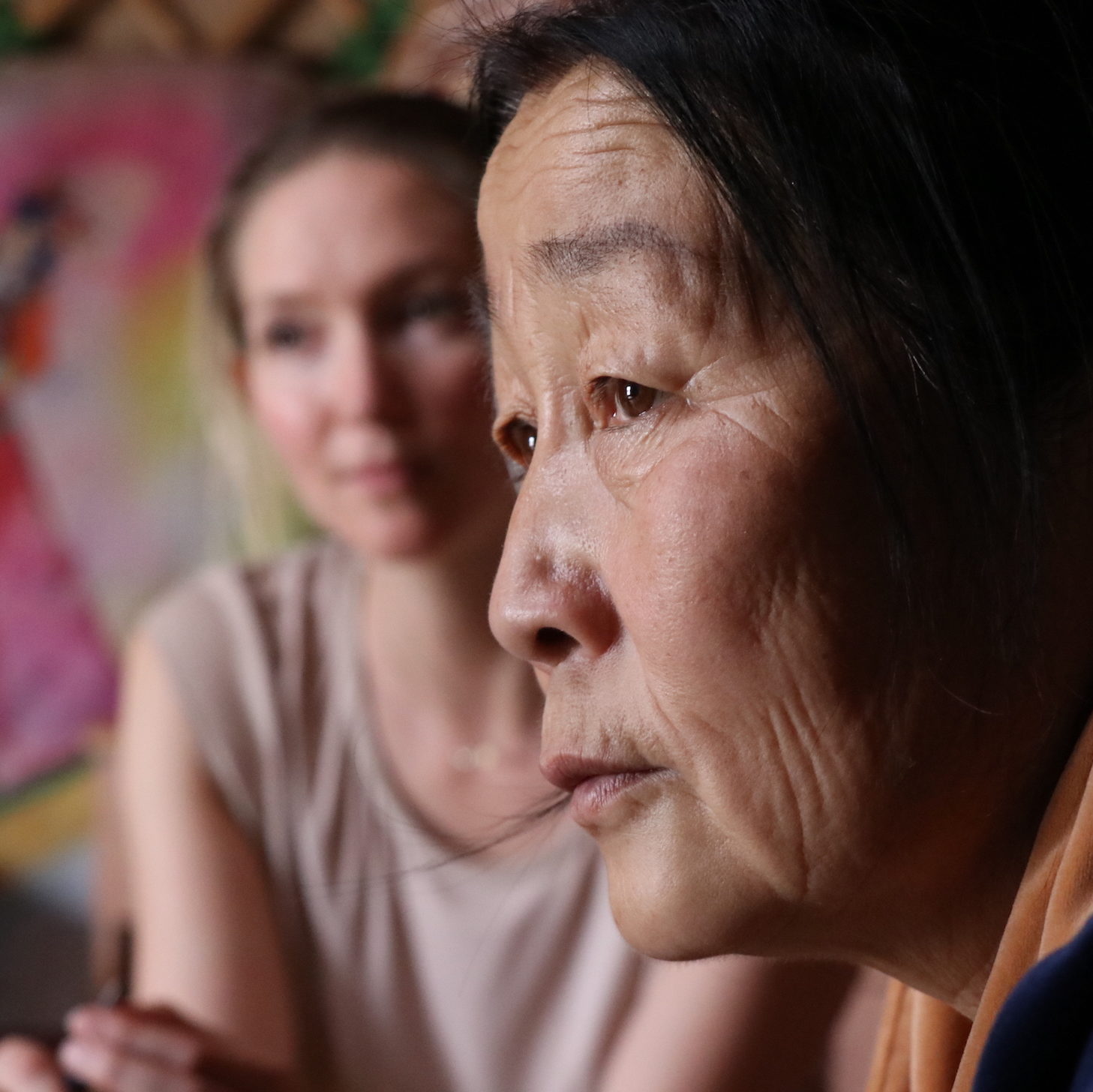 Accountability Counsel supports South Gobi herders whose traditional culture and livelihoods are affected by Rio Tinto’s Oyu Tolgoi (OT) mine, one of the world’s largest gold and copper mines. The historic agreements reached in this case serve as a model for how marginalized communities can hold companies and their institutional investors to account, and for how corporations can settle conflicts to address projects’ social and environmental impacts.
Accountability Counsel supports South Gobi herders whose traditional culture and livelihoods are affected by Rio Tinto’s Oyu Tolgoi (OT) mine, one of the world’s largest gold and copper mines. The historic agreements reached in this case serve as a model for how marginalized communities can hold companies and their institutional investors to account, and for how corporations can settle conflicts to address projects’ social and environmental impacts.With our support, the herder community and their elected representatives overcame a significant power imbalance and effectively represented themselves at the negotiation table with Rio Tinto and their government. The negotiation is serving as a global model for addressing these types of complex community-company disputes. The results are groundbreaking and historic.
Working in coalition with other local and international advocates, Accountability Counsel has assisted herders in raising concerns with international investors, setting rules for the dialogue process and the Tripartite Council, engaging independent experts to analyze environmental conditions, and developing negotiating strategies.
In early 2017, Senior Communities Associate Caitlin Daniel traveled to Mongolia for two months to assist the herders in the final stages of Tripartite Council negotiations. While on the ground in Mongolia, she provided intensive support to herders, held consultations with the larger herder community, and helped craft arguments and develop a sound strategy for the final push to reach agreement.
Using this preparation, and drawing on years of our trainings and technical support, the herders reached two agreements in May 2017. The historic agreements contain 60 individual commitments by the mining company and local government, including commitments to compensate the herders collectively and individually and to hire water experts to drill new wells. Our trainings, long-term technical assistance, and intensive, in-person support during a key moment in the dispute resolution process helped community representatives build a successful negotiating strategy, enabling them to come to an agreement about issues that seemed intractable at the beginning of the process.
Ensuring That Commitments are Delivered
The agreements represent a significant step forward for the herders. However, their true value will only be shown through strong and effective implementation. In February 2019, we published our interactive report, From Paper to Progress: Tracking Agreements between Nomadic Herders and Mongolia’s Largest Copper Mine, which reveals which commitments have been met and which need more attention.
Real progress to date includes:
- Construction of Khanbogd Soum’s first animal laboratory;
- University scholarships provided to 37 herder children;
- 10 herder wells furnished with solar-powered pumps; and
- 114 new compensation packages approved for households that were physically or economically displaced by the mine, totaling approximately US $945,000 in new compensation.
Accountability Counsel will continue to support the herders to monitor the agreements and ensure they are meaningfully realized.
“The TPC’s work has begun to sow real benefits, yet vulnerable herders are still struggling to feed their families and keep their herds alive. It remains far from clear whether the agreements will fulfill their promise of supporting herders to continue their traditional way of life while living next to a world class mine. One thing is clear: rapid and effective progress is needed.” – Caitlin Daniel, Accountability Counsel Senior Communities Associate
-
Case Media
Explore our interactive progress report to track the status of agreement implementation, available in English and Mongolian.
Videos
Press Releases
- 16 December 2024 Urgent Call for Conditionalities on New IFC and EBRD Loan to Oyu Tolgoi Mine
- 26 June 2017 Mongolian Herders Secure Historic Agreement with Oyu Tolgoi Mine, Government to Protect Herds, Health and Livelihoods
- 13 December 2012 New report shows World Bank tough talk on climate is just a mirage in Mongolia’s Gobi desert
Blog Posts
- 31 October 2019 “When the Dust Came In” Screening at the San Francisco International South Asian Film Festival
- 27 September 2019 New Short Film “When the Dust Came In: Mongolian Herders Negotiate Their Future with a Massive Mine” By Caitlin Daniel, Accountability Counsel
- 13 February 2019 A Long Road to Remedy By Sarah Singh, Accountability Counsel
- 6 December 2016 Going Forward Together: Lessons from Mongolia and Colombia on the Importance of Fair Benefit-Sharing For Sustainable Development
- 10 February 2016 Water Disputes Persist as Rio Tinto Pushes Ahead with New Mega Mine
Op-Eds
- 29 April 2020 No sunshine — DFC limits transparency when it is needed most By Stephanie Amoako, Accountability Counsel, in Devex
- 13 August 2018 The key for EXIM’s future lies in accountability
- 13 September 2017 Are Multilateral Development Banks Respecting the Rights of Indigenous Peoples in Development? By Stephanie Amoako, Accountability Counsel, for EarthRights International
Media Coverage
- 8 October 2025 Rio Tinto’s Oyu Tolgoi mine a wake-up call for ethical investors By Caitlin Daniel and Julio Castor Achmadi, Accountability Counsel
- 28 August 2024 Rio Tinto-linked mine still not fulfilling promises to Mongolian herders By Sonam Lama Hyolmo, Mongabay
- 23 August 2024 The Cost of Rio Tinto Profits By Julio Castor Achmadi, Accountability Counsel
- 11 February 2024 Rio Tinto wrangles investors over water contamination claims By Melanie Burton, Reuters
- 10 November 2020 Rio Tinto executive coach reported ethical concerns to regulators Neil Hume, Financial Times
- 26 June 2020 Mongolie: dans le désert de Gobi, des nomades mongols face à un Goliath industriel By Gilles Sabrié, GEO
- 31 October 2019 Calls for IFC to create ‘remedy fund’ to compensate harmed communities
- 23 September 2019 Helping communities defend their rights By Andrew Clarke, Luminate
- 9 August 2017 How a group of Mongolian herders took on a mining giant — and won By Sophie Edwards, Devex
- 26 June 2017 Mongolian herders ink historic agreement with Oyu Tolgoi mine, government By Accountability Counsel, in MINING.com
Photos
-
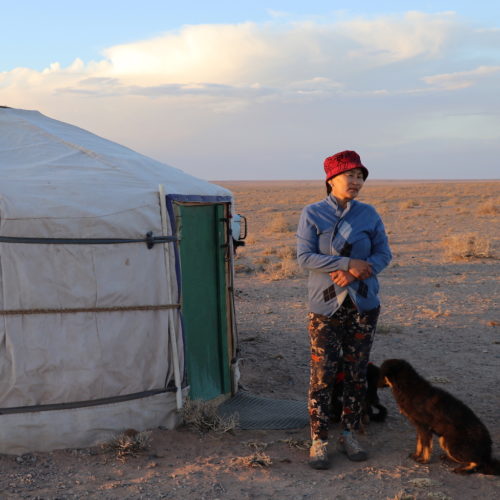
-
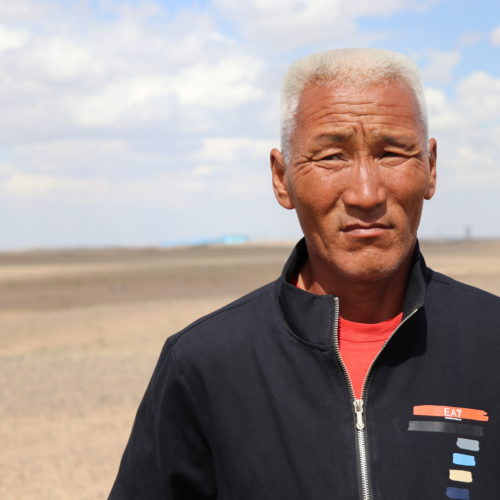
-
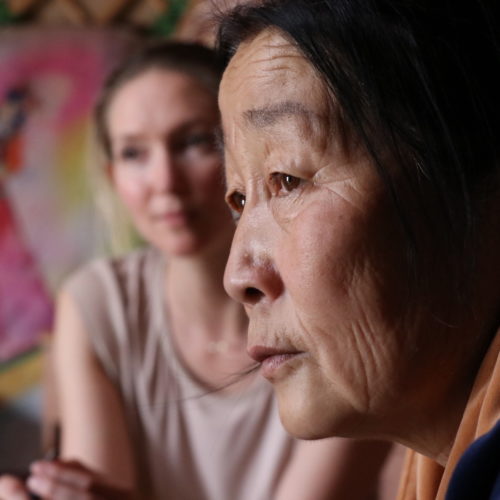
-
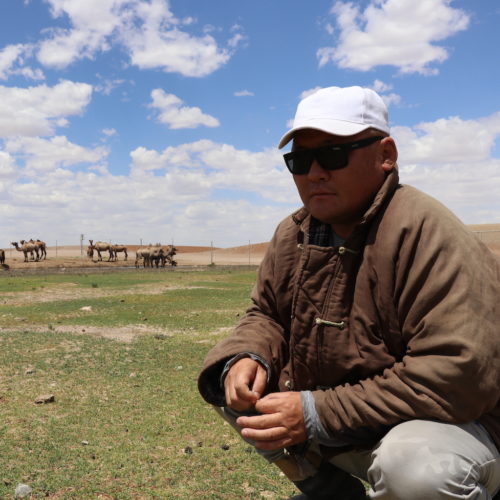 Herder representative Namsrai at OT’s artificial spring
Herder representative Namsrai at OT’s artificial spring -
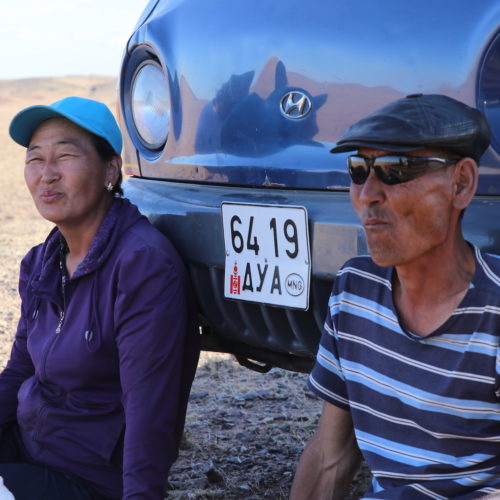 Affected herders in Mongolia
Affected herders in Mongolia -
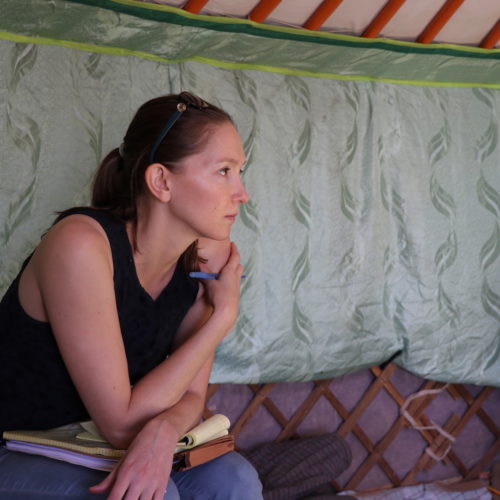
-
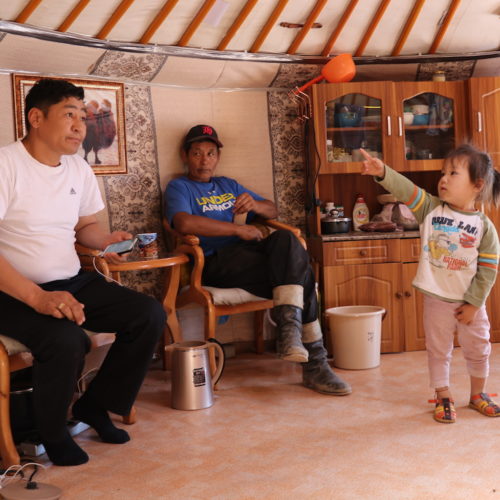
-
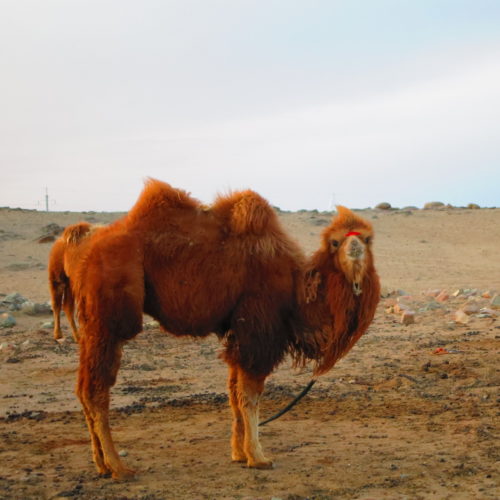
-
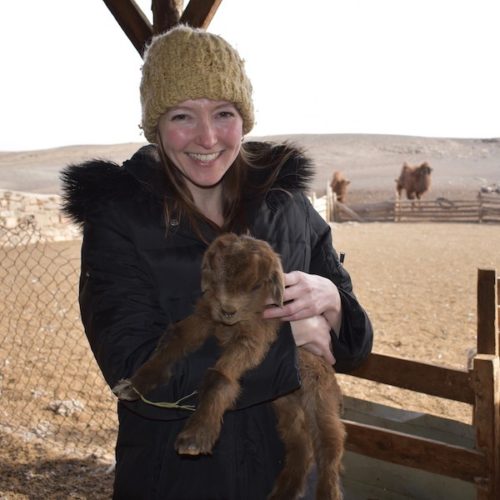 Global Communities Attorney Caitlin Daniel during her time in Mongolia
Global Communities Attorney Caitlin Daniel during her time in Mongolia -
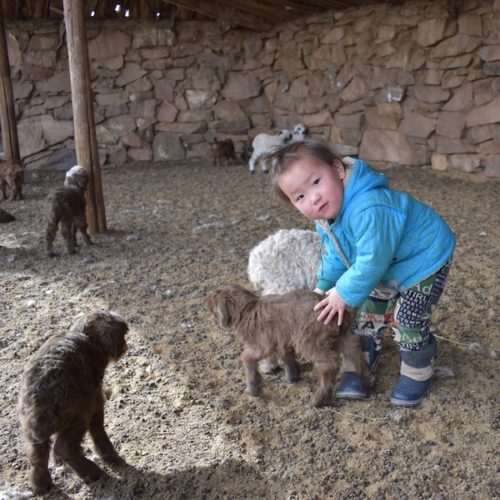 Child of a herder plays with cashmere goats.
Child of a herder plays with cashmere goats. -
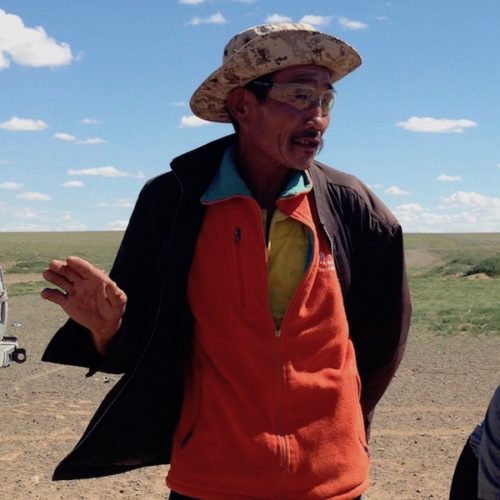
-
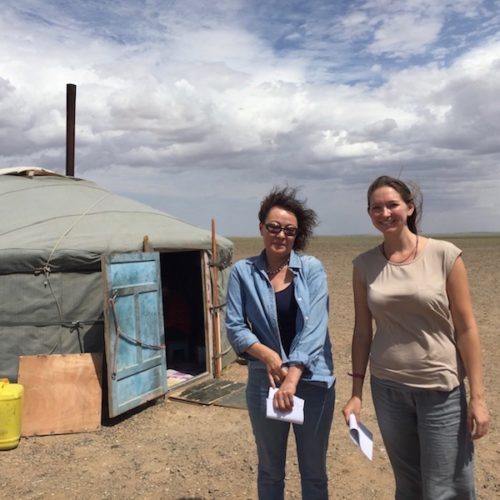 Global Communities Attorney Caitlin Daniel with Sukhgerel Dugersuren of OT Watch.
Global Communities Attorney Caitlin Daniel with Sukhgerel Dugersuren of OT Watch. -
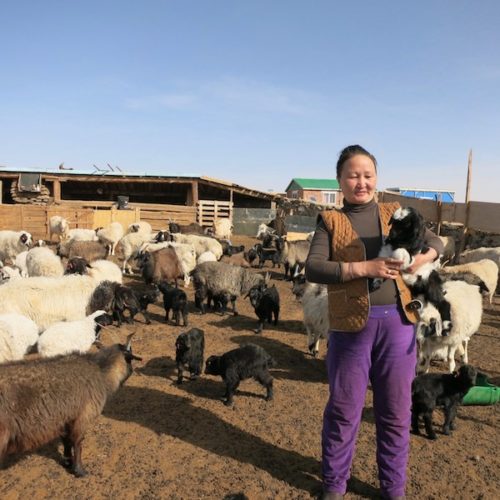
-
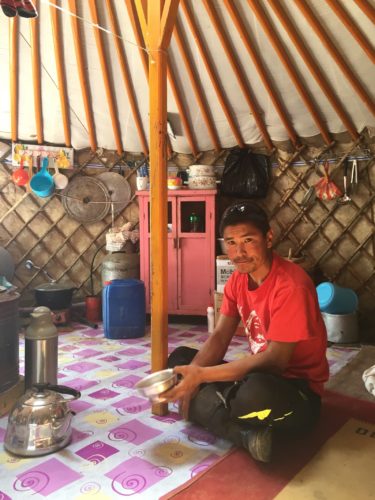
-
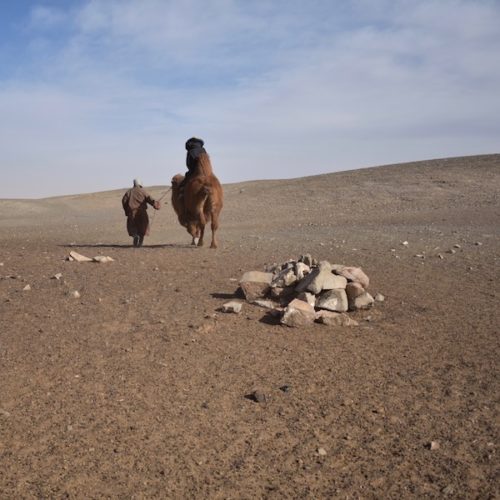 Mongolian herder leads his camel through traditional grazing lands of the South Gobi Desert.
Mongolian herder leads his camel through traditional grazing lands of the South Gobi Desert. -
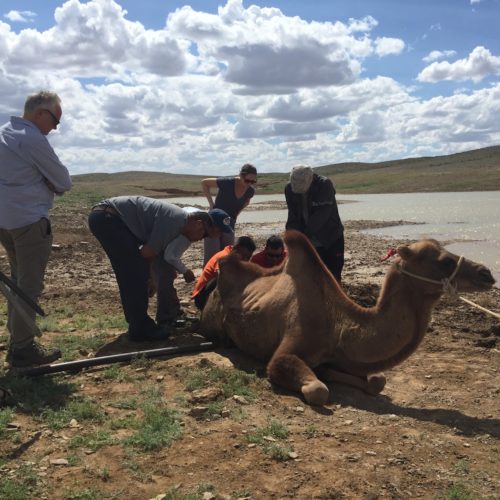
-
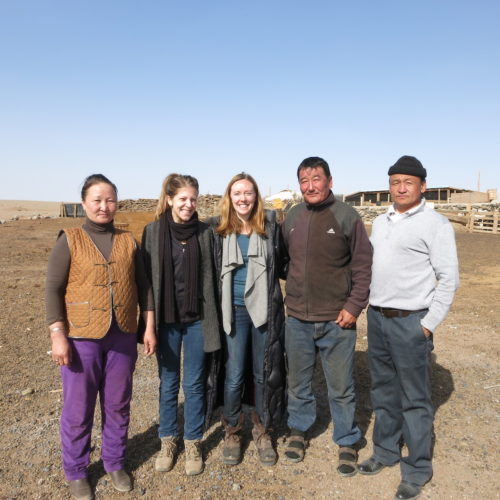
-
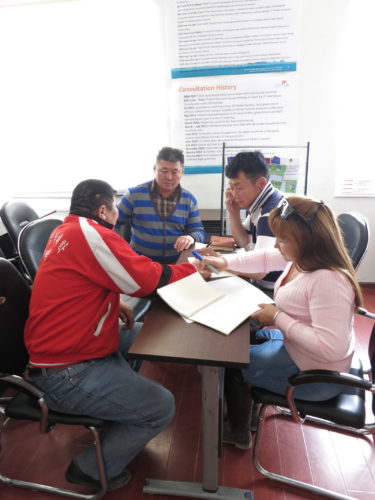
-
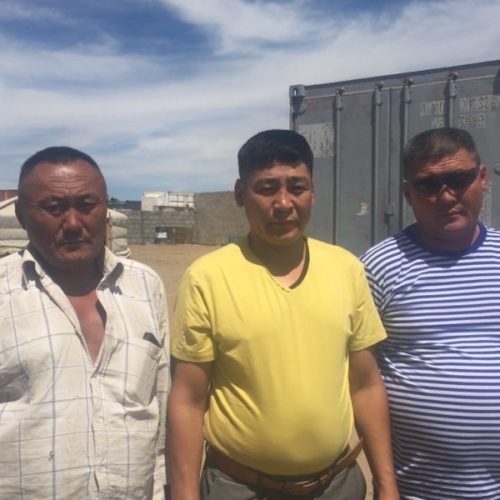
-
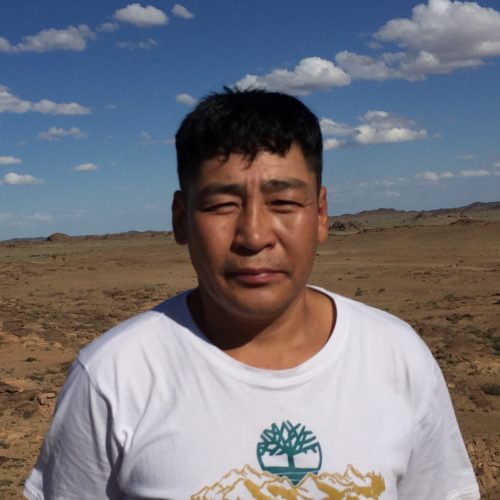
-
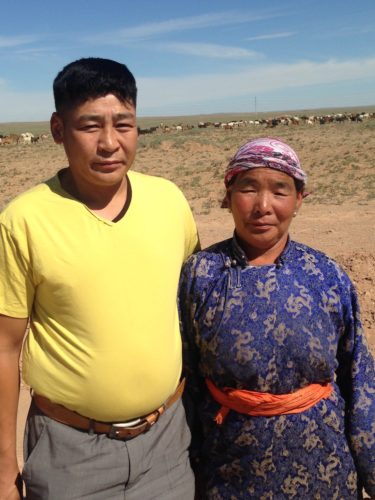
-
